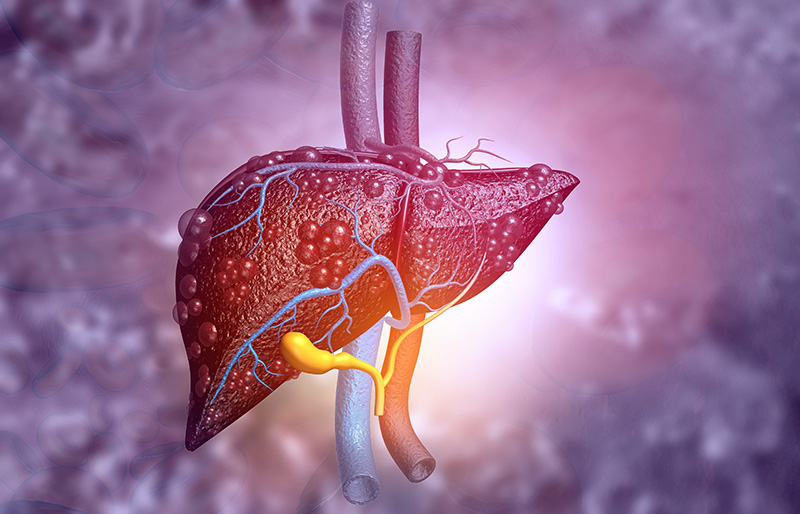
Routine oral care to treat gum disease (periodontitis) may play a role in reducing inflammation and toxins in the blood (endotoxemia) and improving cognitive function in people with liver cirrhosis. The study is published ahead of print in the American Journal of Physiology–Gastrointestinal and Liver Physiology.
Cirrhosis, which is a growing epidemic in the U.S., is the presence of scar tissue on the liver. When severe, it can lead to liver failure. Complications of cirrhosis can include infections throughout the body and hepatic encephalopathy, a buildup of toxins in the brain caused by advanced liver disease. Symptoms of hepatic encephalopathy include confusion, mood changes and impaired cognitive function.
Previous research shows that people with cirrhosis have changes in gut and salivary microbiota– bacteria that populate the gastrointestinal tract and mouth–which can lead to gum disease and a higher risk of cirrhosis-related complications. In addition, studies have found that people with cirrhosis have increased levels of inflammation throughout the body, which is associated with hepatic encephalopathy.
Researchers studied two groups of volunteers that had cirrhosis and mild-to-moderate periodontitis. One group received periodontal care (“treated”), including teeth cleaning and removal of bacteria toxins from the teeth and gums. The other group was not treated for gum disease (“untreated”). The research team collected blood, saliva and stool samples before and 30 days after treatment. Each volunteer took standardized tests to measure cognitive function before and after treatment.
The treated group, especially those with hepatic encephalopathy, had increased levels of beneficial gut bacteria that could reduce inflammation, as well as lower levels of endotoxin-producing bacteria in the saliva when compared to the untreated group. The untreated group, on the other hand, demonstrated an increase in endotoxin levels in the blood over the same time period. The improvement in the treated group “could be related to a reduction in oral inflammation leading to lower systemic inflammation, or due to [less harmful bacteria] being swallowed and affecting the gut microbiota,” the research team wrote.
Cognitive function also improved in the treated group, suggesting that the reduced inflammation levels in the body may minimize some of the symptoms of hepatic encephalopathy in people who are already receiving standard-of-care therapies for the condition. This finding is relevant because there are no further therapies approved by the U.S. Food and Drug Administration to alleviate cognition problems in this population, the researchers said. “The oral cavity could represent a treatment target to reduce inflammation and endotoxemia in patients with cirrhosis to improve clinical outcomes.”
Filed Under: Drug Discovery




